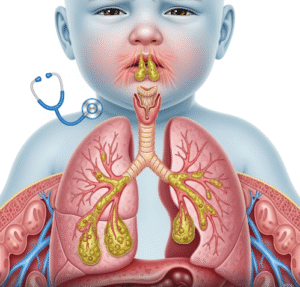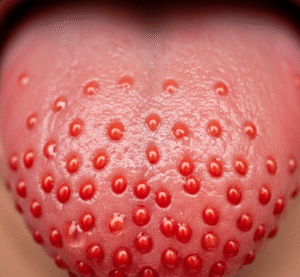Overview
A jellyfish sting is an injury caused by contact with jellyfish tentacles, which contain venom-filled cells called nematocysts. In Korea, jellyfish stings occur mostly during summer (July to September), particularly along the East Sea, Yellow Sea, and South Coast beaches. While most stings are mild, some can cause severe allergic reactions or systemic complications if not treated promptly.
What is a Jellyfish Sting?
A jellyfish sting happens when a swimmer, diver, or beachgoer comes into contact with jellyfish tentacles. The venom is injected into the skin, causing immediate pain, irritation, and sometimes more serious reactions. Stings can occur even from dead or stranded jellyfish on the shore.
Symptoms
- Sudden burning or stinging pain
- Redness, swelling, and welts on the affected area
- Itching or irritation
- Muscle cramps or weakness (rare)
- Nausea, vomiting, or dizziness (moderate to severe cases)
- Difficulty breathing or chest pain (in severe allergic reactions)
Causes
- Direct contact with jellyfish tentacles in the water or on the beach
- Swimming or diving in areas with jellyfish blooms
- Accidental touching of washed-up jellyfish
Risk Factors
- Swimming in peak jellyfish season (July–September)
- Children and elderly individuals (more sensitive skin and immune response)
- Lack of protective swimwear or wetsuits
- Open wounds or cuts increasing venom absorption
Complications
- Severe allergic reaction or anaphylaxis
- Infection at the sting site
- Persistent skin irritation or scarring
- Rare systemic effects like cardiovascular or respiratory distress
Prevention
- Check local beach advisories for jellyfish presence before swimming
- Wear protective clothing like rash guards or wetsuits
- Avoid touching stranded jellyfish, even if they appear dead
- Keep vinegar or commercial sting-neutralizing solutions available during beach activities
- Educate children and swimmers about jellyfish safety
Treatment Options in Korea
Korean coastal hospitals and clinics provide effective treatment for jellyfish stings:
- Immediate Care: Rinse the area with seawater (not freshwater), remove tentacles with tweezers, and apply vinegar (for certain species).
- Medical Treatment: Pain relief with topical or oral medications, antihistamines, and corticosteroids for inflammation.
- Severe Cases: Hospitalization for allergic reactions, IV medications, oxygen therapy, and supportive care.
- Specialized Care: Korean emergency departments near coastal areas are equipped to handle severe stings quickly during peak season.













